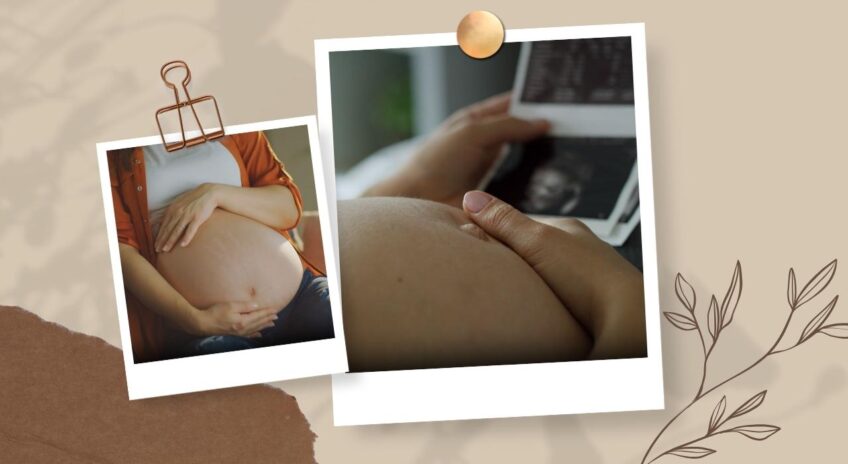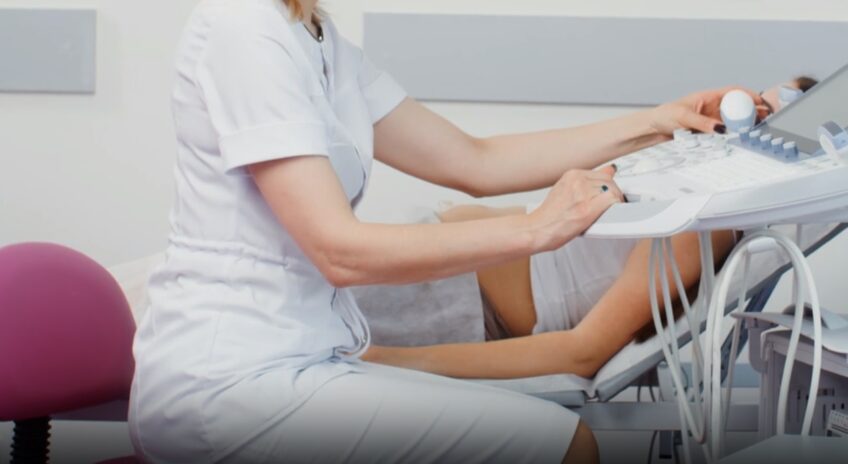Throughout my career, I’ve encountered countless women with questions and concerns about spotting after their period. It’s a topic surrounded by curiosity, myths, and often unnecessary anxiety.
Given its common occurrence and the numerous potential causes, I believe it’s essential to shed light on this phenomenon.
In this piece, I aim to break down the complexities surrounding spotting, ensuring you can approach any changes in your menstrual health with confidence.
What Do You Need to Know About Spotting?
Spotting refers to light vaginal bleeding that occurs outside of your regular menstrual cycle. Unlike the consistent flow of menstruation, this type of bleeding is irregular and varies in color—from bright red to dark brown.
It usually doesn’t last long and is much lighter than a typical period.
How Common is It?
It is common and it can happen to women of all ages. According to research, a significant percentage of women will experience spotting at some point in their lives. However, frequency and reasons differ, and while often benign, it’s essential to understand the underlying causes.
Common Causes

Several reasons can lead to spotting after your menstruation, from hormonal imbalances to physical changes.
1. Ovulation
When an egg is released from an ovary, it can cause a small amount of bleeding in some women. This is because of a brief, sudden drop in estrogen. It typically occurs about two weeks after your period starts and is a natural part of the menstrual cycle.
2. Hormonal Imbalances
Hormones play a crucial role in regulating the menstrual cycle. An imbalance, especially of estrogen and progesterone, can lead to spotting. Factors like stress, significant weight changes, or certain medications can trigger these imbalances.
Other Possible Triggers

Beyond hormonal reasons, several other triggers could cause bleeding post-menstruation.
Birth Control & Medications
Starting, switching, or stopping birth control can cause spotting. This is especially true for birth control pills, intrauterine devices (IUDs), and certain injectable methods.
Similarly, certain medications, especially those affecting hormones, can also lead to bleeding.
Infections & STIs
Some infections, particularly those affecting the cervix like chlamydia, gonorrhea, and trichomoniasis, can lead to spotting. Regular screening and understanding your body are crucial to identify and address these infections early.
Physical Factors Impacting Spotting

Uterine Polyps and Fibroids
Uterine polyps and fibroids are benign growths in the uterus that can cause spotting or heavier periods. Polyps grow on the lining of the uterus, while fibroids are muscle tumors that grow on the uterine walls.
While often non-cancerous, they can sometimes cause discomfort and should be monitored.
Physical Trauma or Medical Procedures
Procedures like pap smears, endometrial biopsies, or even vigorous sexual activity can cause light bleeding. Generally, this kind of spotting resolves on its own, but if it continues, it’s essential to consult with a healthcare provider.
Underlying Medical Conditions
Sometimes, the causes of bleeding are due to specific medical conditions that require attention.
Endometriosis
Endometriosis is a condition where tissue similar to the uterine lining grows outside the uterus. It can be painful and often leads to spotting between periods. Recognizing the symptoms and getting an early diagnosis can help manage the condition better.
Perimenopause
As women approach menopause, their menstrual cycle can become irregular. During perimenopause, the phase leading up to menopause, it’s not uncommon to experience spotting due to the fluctuations in hormone levels.
Spotting During Pregnancy

Bleeding can sometimes be related to pregnancy, indicating different things based on timing.
Implantation Bleeding
Some women experience a phenomenon known as implantation bleeding when the fertilized egg attaches to the uterus lining. This spotting is typically lighter in color and occurs roughly 6-12 days after ovulation.
Pregnancy Complications
While spotting can be harmless during pregnancy, it’s vital to differentiate between normal and abnormal bleeding. Ectopic pregnancies or potential miscarriages can also cause bleeding, emphasizing the importance of monitoring and regular check-ups.
When to Seek Medical Attention?

Not all spotting is a cause for concern, but understanding when to see a doctor can be crucial.
Concerning Symptoms
If the bleeding is accompanied by pain, dizziness, heavy bleeding, foul odor, or any other unusual symptoms, it’s crucial to seek medical attention. These could indicate a more serious underlying issue.
Regular Screenings
Routine gynecological check-ups can help in early detection and intervention of potential issues. If you’re experiencing frequent spotting, maintaining an open dialogue with your healthcare provider can be beneficial.
FAQs
Can Intense Physical Activity Lead to Spotting After a Period?
Yes, intense physical activity or strenuous exercises, like long-distance running or heavy weightlifting, can sometimes cause bleeding. This is due to the physical stress on the body, which can temporarily disrupt the menstrual cycle or cause slight bleeding from the cervix or vagina.
Can the Bleeding Be a Side Effect of Emergency Contraceptive Pills?
Absolutely. Emergency contraceptive pills, often referred to as the “morning-after pill“, can lead to spotting. This is due to the high doses of hormones in these pills, which can affect the menstrual cycle temporarily.
I’ve Been Spotting for More than A Week After My Period Ended. Should I Be Worried?
Continuous spotting for an extended period can be a sign of an underlying issue. While it may be due to benign causes, it’s essential to consult with a healthcare provider to rule out potential problems and get a proper diagnosis.
Can Emotional Stress Be Linked to This?
Indeed, emotional stress can impact menstrual health. Stress can lead to hormonal imbalances, which in turn can cause spotting or disruptions in the menstrual cycle.
Are There Any Over-The-Counter Remedies to Help with Spotting?
Over-the-counter non-steroidal anti-inflammatory drugs (NSAIDs) can sometimes help with pain associated with spotting, but they don’t prevent the bleeding itself. It’s always best to consult with a healthcare provider before taking any medication.
They might provide guidance or recommend other treatments depending on the cause of the bleeding.
The Bottom Line
I hope this piece has brought clarity to the often mystifying occurrence of spotting after a period. It’s my belief, forged through years of experience and research, that knowledge is empowering.
When you understand your body, you’re better equipped to advocate for its well-being. Always remember: it’s okay to seek advice, ask questions, and prioritize your health.
If there’s one message I’d like you to take away, it’s this: trust your body, stay informed, and never hesitate to seek expert counsel when in doubt.

